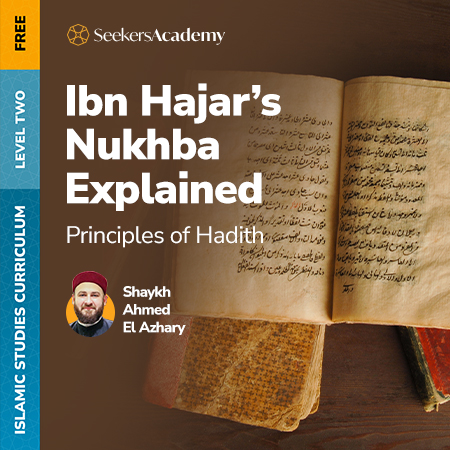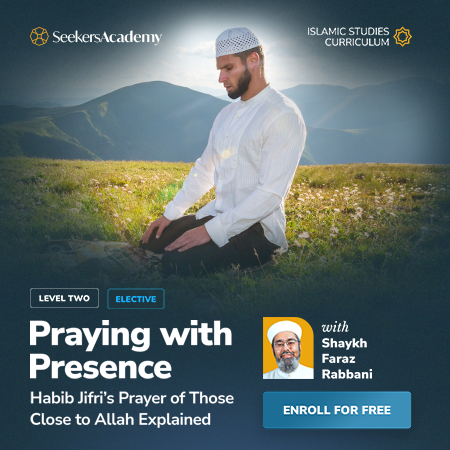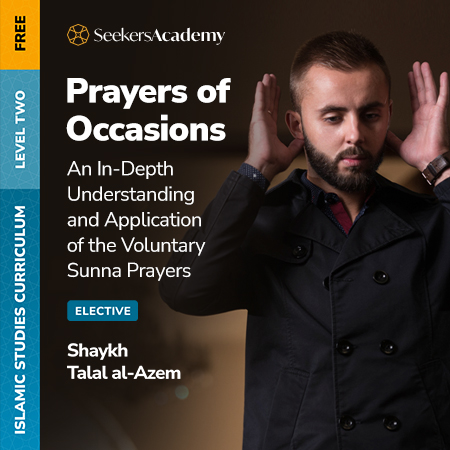
This course provides a rigorous study of one of the most important manuals on the Principles of Hadith and its nomenclature written by one of the most influential Hadith scholars of all time - Nukhbat al-Fikar by Imam Ibn Hajar. The text is usually studied after the completion of al-Bayquniyyah, and it is considered to be the gateway for studying the upper-intermediate and advanced textbooks of Hadith sciences. It is also considered to be the key to understanding the methodology of the scholars of Hadith from the 8th and 9th centuries onward because most of the scholars of Hadith after Ibn Hajar followed his systematic approach.
By carefully examining the definitions of Hadith principles and nomenclature included in the Nukhba, students will be able to conceptualize the criteria and application of Hadith authentication. The course will also provide a thorough introduction that covers the epistemological underpinnings of Hadith as a reliable source of knowledge, the intellectual history of Hadith sciences, and the tradition of teaching Nukhbat al-Fikar.
Also, while maintaining focused attention on conveying the objectives of the Nukhba as intended by its author, the course will briefly touch upon the key variations between the early and the late schools of Hadith as well as the significant differences between the methodologies of Ahl al-Hadith and the Hanafis.
- Teacher: Shaykh Ahmed El Azhary
Nukhbat al-Fikar is a fundamental primer in the Science of Hadith authored by the foremost late authority in Hadith, the renowned scholar Ibn Hajr al-`Asqalani. Since it was written, it was considered a breakthrough in the authorship of Hadith sciences. It was the first canonization of Hadith principles. So, its uniqueness does not stem only from its summarization of the previous works and its conciseness but from the fact that it was the first logically systemized text on principles of the Hadith sciences and Hadith nomenclature. And for this very reason, al-Nukhba is considered to be the first “matn” - in the very technical sense of the term - on Hadith principles.
As soon as Ibn Hajar completed al-Nukhba, it gained wide acceptance from his teachers and his students alike. The very first commentary on it was written by one of the teachers of Ibn Hajar before he, himself, wrote his own commentary titled: Nuzhat al-Nadhar. Both the primer Nukhbat al-Fikar and its commentary Nuzhat al-Nadhar, were taught by Ibn Hajar. This class, alongside the wide acceptance of the text, initiated a tradition of commentaries on al-Nukhba and super-commentaries on al-Nuzha.
Since it was written, Nukhbat al-Fikar has become an integral component in the Islamic studies curricula of virtually every madrasa and institute in the Muslim world.
- This course is for adults.
- It is particularly beneficial for developing a mastery of Hadith sciences.
- It is a Level Two course. In order to successfully complete this course, students should first take An Introduction to the Science of Hadith: Bayquni's Hadith Terminology and Abhari’s Isaghuji: An Introduction to Traditional Logic
- This course can also be taken by anyone who wants to understand the process of Hadith authentication and its requirements; the methodology of verifying Hadith narrators; and the dynamics of Hadith transmission and evaluation of chains of narration.
- Understand the epistemological foundations of the Sunna and its reliability as a source of knowledge.
- Identify the nuances of Hadith terminology and recognize their contextual subtleties.
- Understand the process of Hadith authentication and its requirements.
- Understand the methodology of verifying Hadith narrators.
- Conceptualize the various sciences of Hadith and their role in Hadith authentication.
- Grasp the various degrees of Hadith acceptance and rejection.
- Understand the dynamics of Hadith transmission and evaluation of chains of narration.


